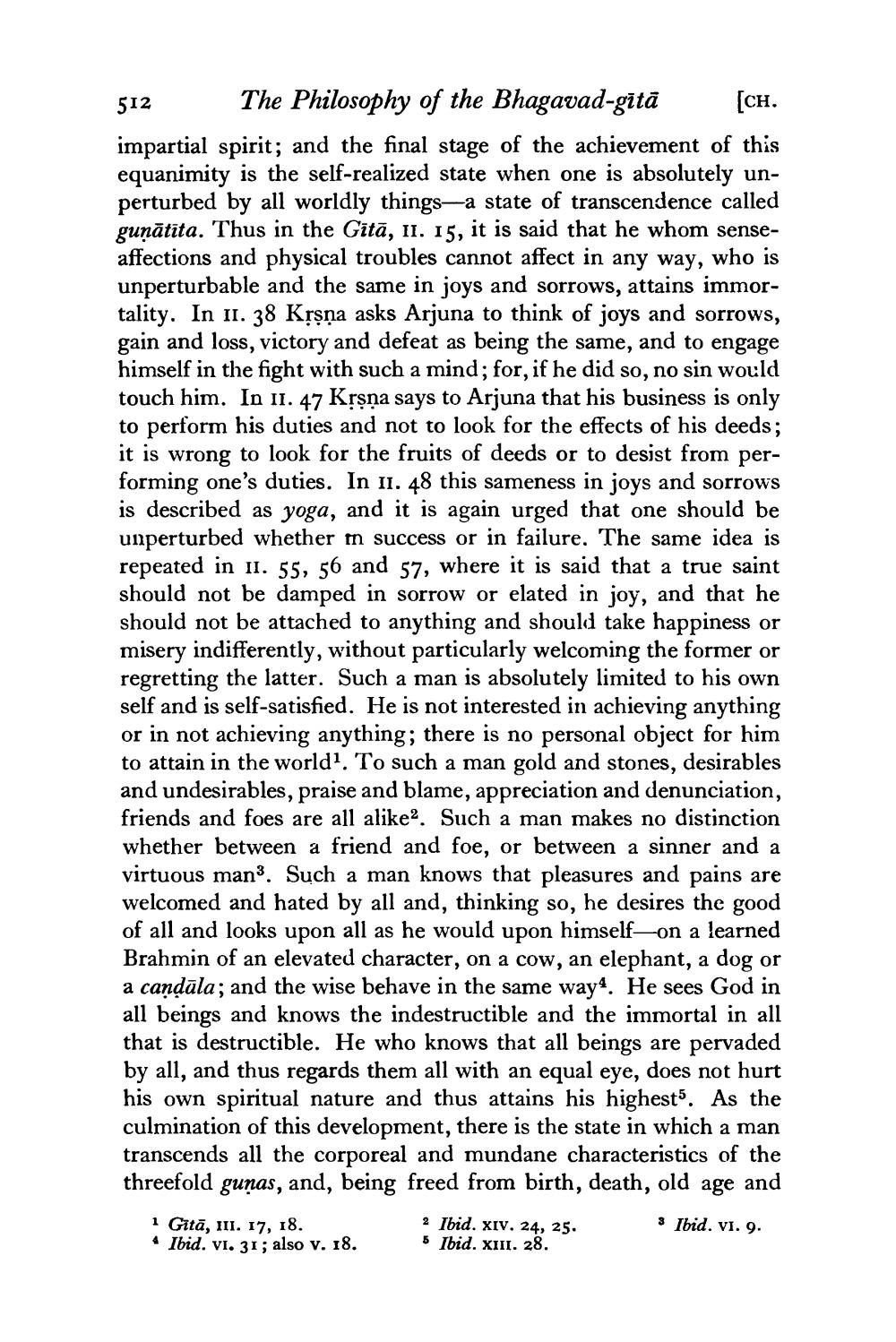________________
512 The Philosophy of the Bhagavad-gītā [CH. impartial spirit; and the final stage of the achievement of this equanimity is the self-realized state when one is absolutely unperturbed by all worldly things—a state of transcendence called guņātīta. Thus in the Gītā, II. 15, it is said that he whom senseaffections and physical troubles cannot affect in any way, who is unperturbable and the same in joys and sorrows, attains immortality. In II. 38 Krşņa asks Arjuna to think of joys and sorrows, gain and loss, victory and defeat as being the same, and to engage himself in the fight with such a mind; for, if he did so, no sin would touch him. In 11. 47 Krsna says to Arjuna that his business is only to perform his duties and not to look for the effects of his deeds; it is wrong to look for the fruits of deeds or to desist from performing one's duties. In 11. 48 this sameness in joys and sorrows is described as yoga, and it is again urged that one should be unperturbed whether m success or in failure. The same idea is repeated in II. 55, 56 and 57, where it is said that a true saint should not be damped in sorrow or elated in joy, and that he should not be attached to anything and should take happiness or misery indifferently, without particularly welcoming the former or regretting the latter. Such a man is absolutely limited to his own self and is self-satisfied. He is not interested in achieving anything or in not achieving anything; there is no personal object for him to attain in the world'. To such a man gold and stones, desirables and undesirables, praise and blame, appreciation and denunciation, friends and foes are all alike?. Such a man makes no distinction whether between a friend and foe, or between a sinner and a virtuous mano. Such a man knows that pleasures and pains are welcomed and hated by all and, thinking so, he desires the good of all and looks upon all as he would upon himself-on a learned Brahmin of an elevated character, on a cow, an elephant, a dog or a candāla; and the wise behave in the same way. He sees God in all beings and knows the indestructible and the immortal in all that is destructible. He who knows that all beings are pervaded by all, and thus regards them all with an equal eye, does not hurt his own spiritual nature and thus attains his highest. As the culmination of this development, there is the state in which a man transcends all the corporeal and mundane characteristics of the threefold guņas, and, being freed from birth, death, old age and i Gitā, III. 17, 18.
2 Ibid. xiv. 24, 25.
3 Ibid. vi. 9. • Ibid. vi. 31; also v. 18. 5 Ibid. XIII. 28.




